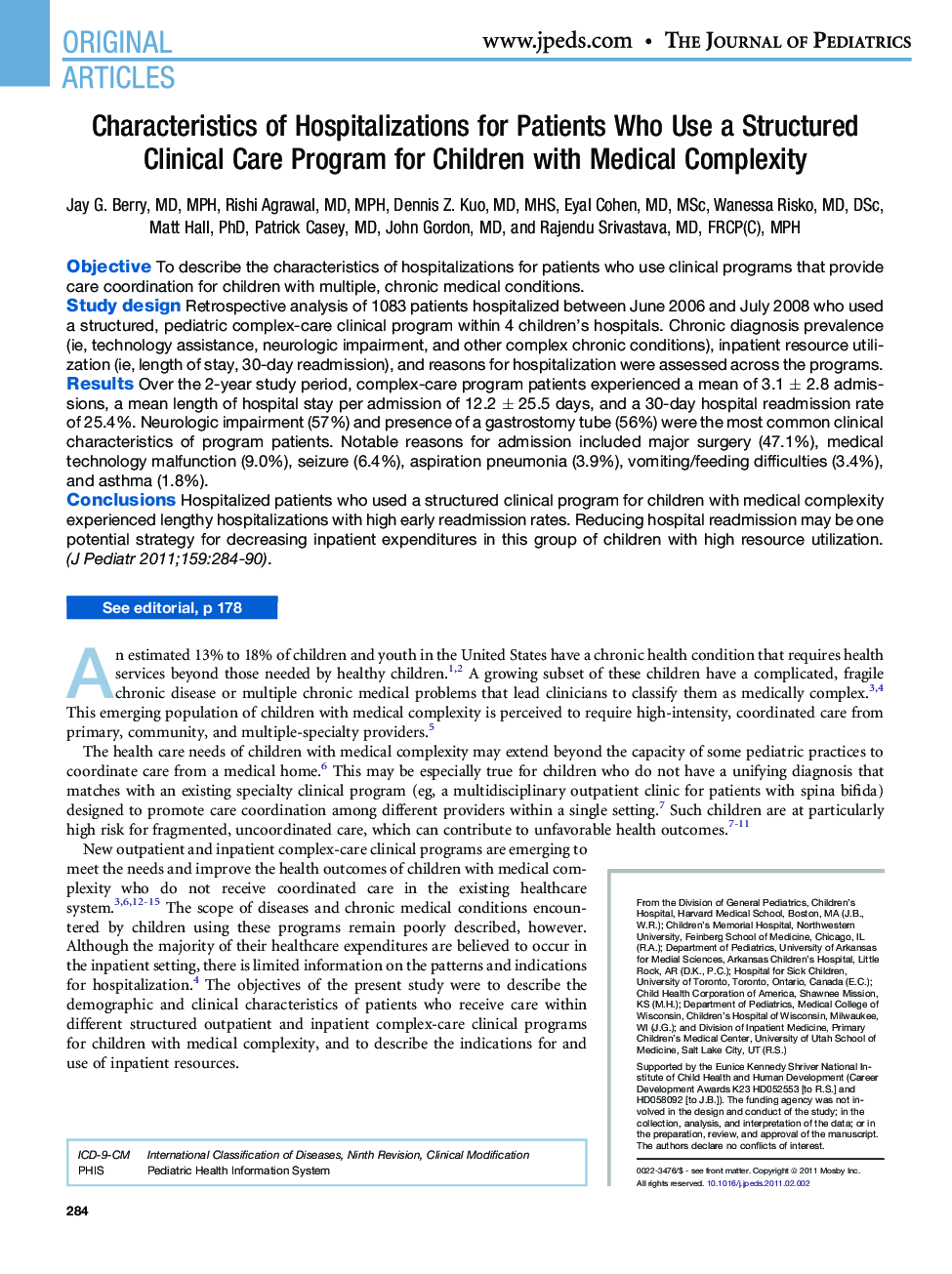| Article ID | Journal | Published Year | Pages | File Type |
|---|---|---|---|---|
| 6224640 | The Journal of Pediatrics | 2011 | 7 Pages |
ObjectiveTo describe the characteristics of hospitalizations for patients who use clinical programs that provide care coordination for children with multiple, chronic medical conditions.Study designRetrospective analysis of 1083 patients hospitalized between June 2006 and July 2008 who used a structured, pediatric complex-care clinical program within 4 children's hospitals. Chronic diagnosis prevalence (ie, technology assistance, neurologic impairment, and other complex chronic conditions), inpatient resource utilization (ie, length of stay, 30-day readmission), and reasons for hospitalization were assessed across the programs.ResultsOver the 2-year study period, complex-care program patients experienced a mean of 3.1 ± 2.8 admissions, a mean length of hospital stay per admission of 12.2 ± 25.5 days, and a 30-day hospital readmission rate of 25.4%. Neurologic impairment (57%) and presence of a gastrostomy tube (56%) were the most common clinical characteristics of program patients. Notable reasons for admission included major surgery (47.1%), medical technology malfunction (9.0%), seizure (6.4%), aspiration pneumonia (3.9%), vomiting/feeding difficulties (3.4%), and asthma (1.8%).ConclusionsHospitalized patients who used a structured clinical program for children with medical complexity experienced lengthy hospitalizations with high early readmission rates. Reducing hospital readmission may be one potential strategy for decreasing inpatient expenditures in this group of children with high resource utilization.
